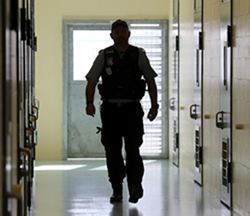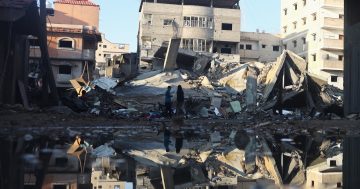 The Australian Human Rights Commission (AHRC) has put out a call for Governments to commit to implementing a human rights framework for people held in detention.
The Australian Human Rights Commission (AHRC) has put out a call for Governments to commit to implementing a human rights framework for people held in detention.
The Commission’s call, to all State and Territory Governments, follows the suspension of a tour of Australia by United Nations inspectors.
Issuing the call, President of the AHRC, Rosalind Croucher said a delegation from the UN Subcommittee on the Prevention of Torture (UN SPT) had been in Australia since last week to help the country meet its 20 January deadline for implementing the Optional Protocol to the Convention against Torture (OPCAT) – which was ratified by Australia in 2017.
“As part of their evaluation process, the delegation had foreshadowed making unannounced inspections of detention facilities across the country,” Professor Croucher said.
“However, the UN SPT announced in a blunt assessment that it was suspending the visit due to obstructions of its OPCAT inspection mandate, particularly noting the lack of co-operation by the Governments of NSW and Queensland,” she said.
“The delegation may decide to resume its inspection in the future if it receives assurances from the Commonwealth as well as all State and Territory Governments of unfettered access to all detention facilities.”
Professor Croucher said the only countries where inspections had previously been suspended were Azerbaijan (suspended in 2014), Ukraine (suspended in 2016) and Rwanda (suspended in 2017 and terminated in 2018).
She called on Attorneys-General from across the country to urgently meet to reaffirm Australia’s commitment to OPCAT and to outline immediate and tangible steps for ensuring the country complied with its obligations.
“This is a very regrettable situation for Australia, both in terms of Australia’s international standing and the responsibility of Australian authorities to protect people which they place in held environments,” the President said.
“OPCAT is designed to protect the rights, health and safety of people experiencing any kind of detention,” she said.
“This includes people in prisons, juvenile detention centres, immigration detention centres, hospitals, mental health facilities, aged care facilities and facilities for people with disability.
“By blocking access to facilities, the NSW and Queensland Governments have raised questions about why access is being denied and if the rights, health and safety of people being detained in these facilities are at risk,” Professor Croucher said.




